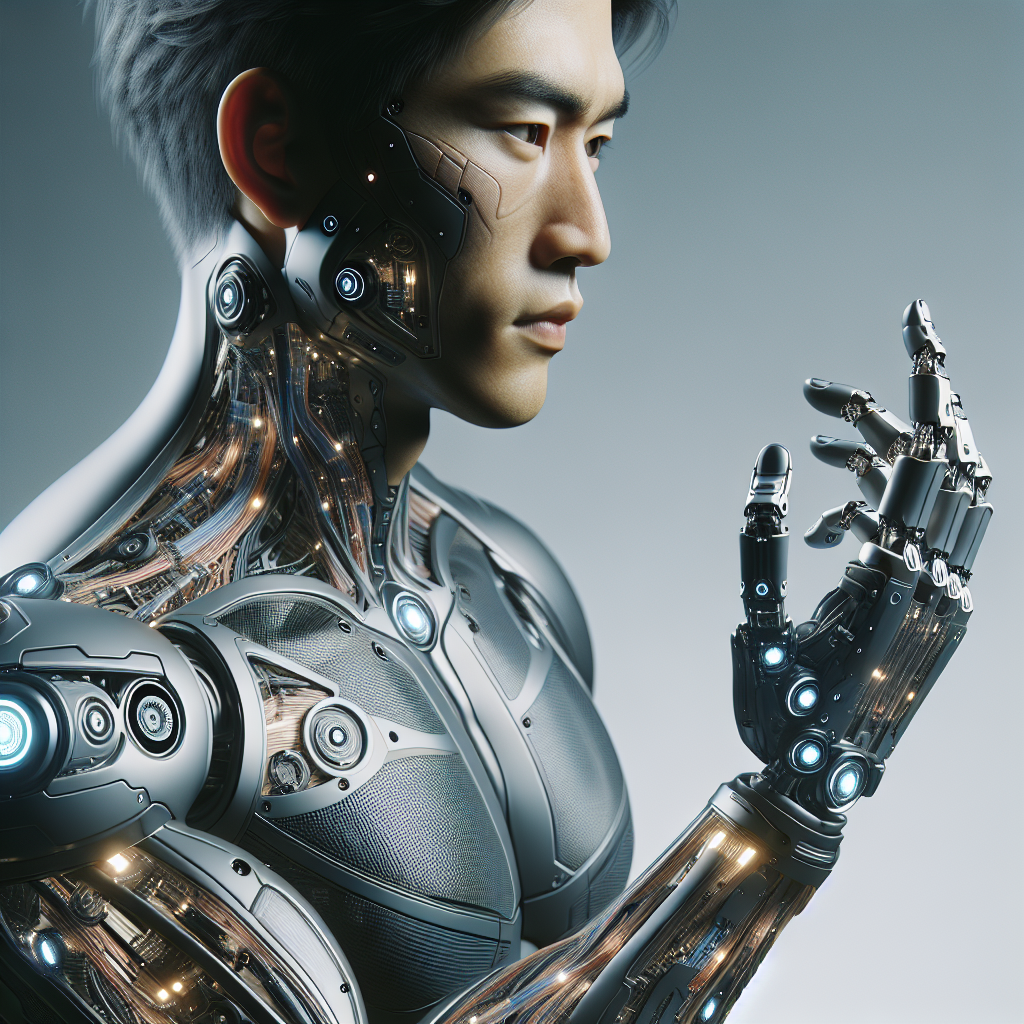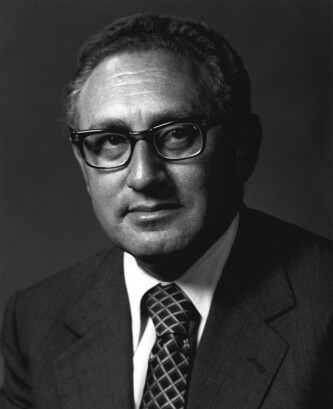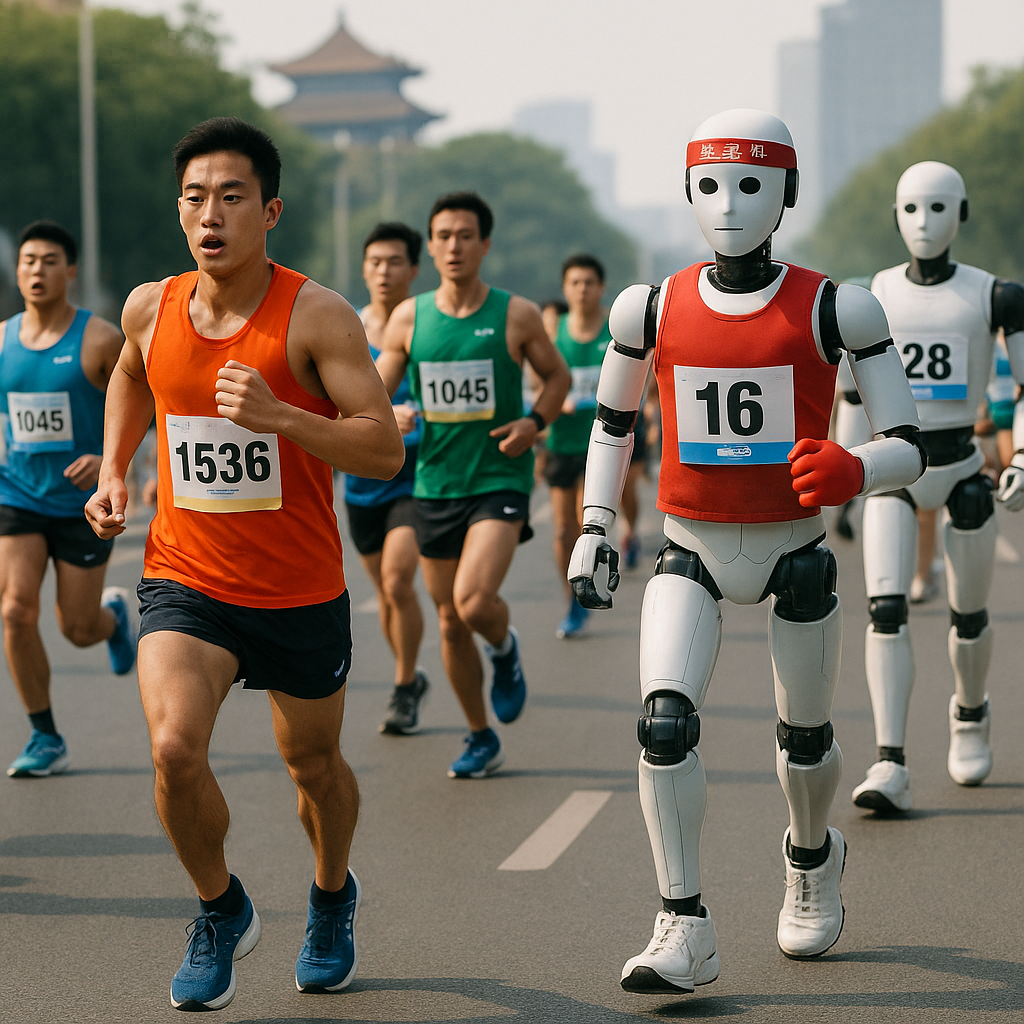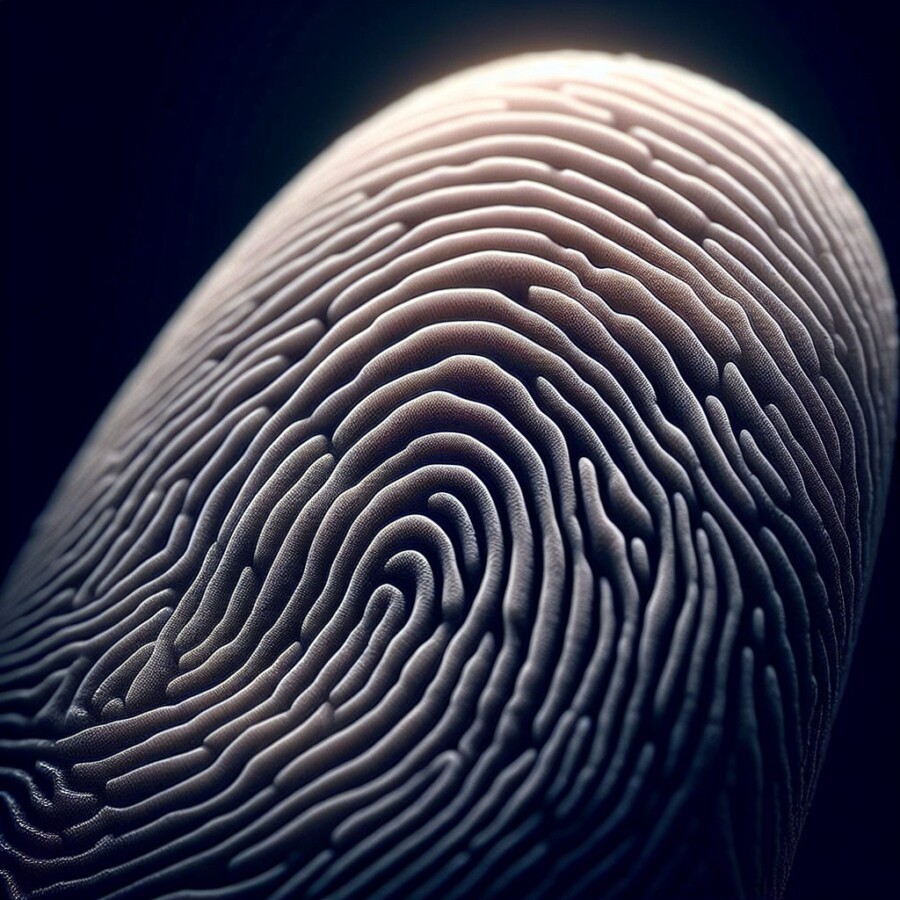Prosthetic limbs have evolved significantly over the years, moving from wooden and tin designs to modern silicone and carbon fiber materials. The latest innovation in prosthetics is the development of bionic arms, which incorporate artificial intelligence (AI) technology. Atom Limbs, a company based in California, is at the forefront of this advancement. Their bionic arm utilizes advanced sensors and machine learning to interpret electrical signals from the user’s brain, enabling them to control and manipulate the prosthetic limb with a full range of human motion.
The Atom Limbs bionic arm is lightweight and non-invasive, meaning it does not require surgery or implants to function. It attaches to the wearer’s residual limb using sensors and a cup that fits over the top. The arm connects to an interface, allowing the user to operate it digitally on a computer screen. This technology provides a unique and mind-boggling experience, as users can control a part of their body that they do not physically possess.
While the technology is exciting, the cost remains a concern for many disabled individuals. Assistive devices often come with a hefty price tag, making them inaccessible for those with limited financial means. Atom Limbs aims to position their bionic arm around the $20,000 price point, which is relatively affordable compared to other similar products on the market. However, it is still a significant investment that may not be feasible for everyone.
In addition to cost, there are ethical and practical considerations surrounding the use of bionic arms. Some argue that the focus on innovation in prosthetics has overshadowed the importance of practical application. Social media star Tilly Lockey, who has been using bionic arms since a young age, emphasizes the need for user feedback and testing to ensure the effectiveness of these devices.
While the Atom Limbs bionic arm is still in the early stages of development, the company is collecting data for regulatory filings in the US. It will take some time before these arms become widely available for everyday use. However, the potential for this technology to improve the lives of individuals with limb differences is promising.
Original news source: The ‘mind-bending’ bionic arm powered by AI (BBC)
🎧 Listen:
Slow
Normal
Fast
📖 Vocabulary:
| 1 | prosthetic | Relating to an artificial device that replaces a missing body part |
| 2 | bionic | Pertaining to or involving the use of technology that mimics the functions of the human body |
| 3 | artificial intelligence | The simulation of human intelligence by machines |
| 4 | sensors | Devices that detect and respond to physical or environmental changes |
| 5 | non-invasive | Not requiring entry into the body or the disruption of bodily tissues |
| 6 | interface | A point where two systems meet and interact |
| 7 | digitally | Involving or relating to the use of computer technology |
| 8 | assistive | Designed to provide assistance, especially to those with disabilities |
| 9 | hefty | Large in amount or size |
| 10 | inaccessible | Not reachable or obtainable |
| 11 | ethical | Concerning principles of right and wrong behavior |
| 12 | practical | Concerned with the actual use or practice rather than with theory |
| 13 | innovation | The act or process of introducing new ideas, devices, or methods |
| 14 | regulatory | Relating to official rules or the process of controlling something |
| 15 | promising | Showing signs of future success or potential |
Group or Classroom Activities
Warm-up Activities:
– News Summary
Instructions: Divide the class into small groups. Assign each group a different aspect of the article to focus on (e.g. the development of bionic arms, the cost, the ethical considerations). Ask the groups to read their assigned section and then summarize the key points in a news article format. They should include a headline, a brief summary, and a few supporting details. Afterward, have each group present their news summary to the class.
– Opinion Poll
Instructions: Create a list of statements related to the article, such as “The development of bionic arms is a positive advancement” or “The cost of bionic arms is too high.” Have the students individually rate each statement on a scale of 1 to 5, with 1 being strongly disagree and 5 being strongly agree. Once they have rated all the statements, collect their responses and tally the results. Use the class’s opinions as a basis for discussion, encouraging students to share their reasoning and engage in a debate.
– Sketch It
Instructions: Give each student a blank piece of paper and ask them to sketch what they imagine a bionic arm looks like based on the article. Afterward, have students share their sketches with a partner and explain their design choices. As a class, discuss the different interpretations and similarities among the sketches, encouraging students to think creatively and critically about the concept of bionic arms.
– Speed Summarizing
Instructions: Divide the class into pairs. Give each pair a timer and ask them to take turns summarizing the key points of the article in one minute or less. Encourage them to practice speaking fluently and concisely as they relay the information. Afterward, have pairs switch partners and repeat the activity. This will give students multiple opportunities to practice summarizing and improve their speaking skills.
– Future Predictions
Instructions: In small groups, ask students to brainstorm and discuss their predictions for the future of bionic arms and prosthetic technology. Prompt them to consider aspects such as advancements in AI, accessibility, and affordability. After the discussion, have each group present their predictions to the class, encouraging them to support their ideas with evidence from the article or their own reasoning.
🤔 Comprehension Questions:
1. How have prosthetic limbs evolved over the years?
2. What is the latest innovation in prosthetics?
3. How does the Atom Limbs bionic arm attach to the wearer’s residual limb?
4. How does the user operate the Atom Limbs bionic arm?
5. Why is the cost of assistive devices a concern for many disabled individuals?
6. What is Atom Limbs’ goal in terms of pricing for their bionic arm?
7. What are some ethical and practical considerations surrounding the use of bionic arms?
8. What stage of development is the Atom Limbs bionic arm currently in?
Go to answers ⇩
🎧✍️ Listen and Fill in the Gaps:
Prosthetic limbs have evolved significantly over the years, moving from wooden and tin designs to modern silicone and carbon fiber materials. The (1)______ innovation in prosthetics is the development of bionic arms, which incorporate artificial intelligence (AI) technology. Atom Limbs, a company based in California, is at the forefront of this advancement. Their bionic arm utilizes advanced (2)______ and machine learning to interpret electrical signals from the user’s (3)______, (4)______ them to control and manipulate the prosthetic limb with a full range of (5)______ motion.
The Atom Limbs bionic arm is lightweight and non-invasive, meaning it does not require surgery or implants to function. It (6)______ to the wearer’s residual limb using sensors and a cup that fits over the top. The arm (7)______ to an interface, allowing the user to operate it digitally on a computer screen. This (8)______ provides a unique and mind-boggling experience, as users can control a part of their body that they do not physically possess.
While the technology is exciting, the cost remains a concern for many disabled individuals. Assistive devices often come with a hefty (9)______ tag, making them inaccessible for those with (10)______ financial means. Atom Limbs aims to position their bionic arm around the $20,000 price point, which is relatively affordable compared to other similar products on the market. However, it is still a significant investment that may not be (11)______ for everyone.
In addition to cost, there are ethical and practical considerations surrounding the use of bionic arms. Some (12)______ that the focus on innovation in prosthetics has overshadowed the importance of practical application. Social media star Tilly Lockey, who has been using bionic arms since a young age, emphasizes the need for user feedback and testing to ensure the effectiveness of these (13)______.
While the Atom (14)______ bionic arm is still in the early stages of development, the company is collecting data for regulatory filings in the US. It will take some time before these arms become widely (15)______ for everyday use. However, the (16)______ for this technology to improve the lives of individuals with limb differences is promising.
Go to answers ⇩
💬 Discussion Questions:
Students can ask a partner these questions, or discuss them as a group.
1. What is a bionic arm and how does it differ from traditional prosthetic limbs?
2. How would you feel if you had the opportunity to control a part of your body that you do not physically possess?
3. Do you think the development of bionic arms is a significant advancement in prosthetics? Why or why not?
4. What are some potential benefits of using bionic arms for individuals with limb differences?
5. How do you think the use of artificial intelligence in bionic arms can enhance their functionality?
6. Do you think the cost of bionic arms is a barrier for many disabled individuals? Why or why not?
7. What are some ethical considerations surrounding the use of bionic arms?
8. How important do you think user feedback and testing are in the development of prosthetic devices?
9. Do you think the focus on innovation in prosthetics has overshadowed practical application? Why or why not?
10. How do you think the development of bionic arms will impact the lives of individuals with limb differences?
11. What are some potential challenges or limitations of using bionic arms?
12. How do you think the development of bionic arms will change society’s perception of disability?
13. Do you think the use of bionic arms should be covered by healthcare systems? Why or why not?
14. How do you think the development of bionic arms will affect the job market for individuals with limb differences?
15. What are some other advancements in prosthetics that you would like to see in the future?
Individual Activities
📖💭 Vocabulary Meanings:
Match each word to its meaning.
Words:
1. prosthetic
2. bionic
3. artificial intelligence
4. sensors
5. non-invasive
6. interface
7. digitally
8. assistive
9. hefty
10. inaccessible
11. ethical
12. practical
13. innovation
14. regulatory
15. promising
Meanings:
(A) The simulation of human intelligence by machines
(B) Involving or relating to the use of computer technology
(C) A point where two systems meet and interact
(D) Devices that detect and respond to physical or environmental changes
(E) Designed to provide assistance, especially to those with disabilities
(F) Concerned with the actual use or practice rather than with theory
(G) The act or process of introducing new ideas, devices, or methods
(H) Showing signs of future success or potential
(I) Not requiring entry into the body or the disruption of bodily tissues
(J) Not reachable or obtainable
(K) Concerning principles of right and wrong behavior
(L) Relating to official rules or the process of controlling something
(M) Relating to an artificial device that replaces a missing body part
(N) Large in amount or size
(O) Pertaining to or involving the use of technology that mimics the functions of the human body
Go to answers ⇩
🔡 Multiple Choice Questions:
1. What is the latest innovation in prosthetics?
(a) Wooden limbs
(b) Bionic arms
(c) Tin designs
(d) Carbon fiber materials
2. What technology does the Atom Limbs bionic arm utilize?
(a) Artificial intelligence (AI)
(b) Machine learning
(c) Advanced sensors
(d) All of the above
3. How does the Atom Limbs bionic arm attach to the wearer’s residual limb?
(a) Surgery and implants
(b) Wooden and tin designs
(c) Carbon fiber materials
(d) Sensors and a cup
4. How can users operate the Atom Limbs bionic arm?
(a) Through surgery and implants
(b) By using advanced sensors
(c) Digitally on a computer screen
(d) All of the above
5. What is a concern for many disabled individuals regarding bionic arms?
(a) Practical application
(b) Ethical considerations
(c) Cost
(d) All of the above
6. How does Atom Limbs aim to position their bionic arm in terms of cost?
(a) Around $20,000
(b) Around $10,000
(c) Around $50,000
(d) Around $100,000
7. What does Tilly Lockey emphasize regarding the use of bionic arms?
(a) Artificial intelligence (AI)
(b) User feedback and testing
(c) Advanced sensors
(d) Machine learning
8. What is the current stage of development for the Atom Limbs bionic arm?
(a) Widely available for everyday use
(b) Regulatory filings in the US
(c) All of the above
(d) Early stages
Go to answers ⇩
🕵️ True or False Questions:
1. Atom Limbs, a California-based company, is at the forefront of developing bionic arms.
2. The Atom Limbs bionic arm uses advanced sensors and machine learning to interpret electrical signals from the user’s brain.
3. The arm disconnects from an interface, preventing the user from operating it digitally on a computer screen.
4. Prosthetic limbs have evolved from wooden and tin designs to outdated silicone and carbon fiber materials.
5. The development of bionic arms raises ethical and practical considerations, including the need for user feedback and testing.
6. Atom Limbs aims to make their bionic arm expensive, with a target price point of around $2,000.
7. Bionic arms are the latest innovation in prosthetics and incorporate artificial intelligence (AI) technology.
8. The bionic arm is heavy and invasive, attaching to the wearer’s residual limb using motors and screws.
Go to answers ⇩
📝 Write a Summary:
Write a summary of this news article in two sentences.
Check your writing now with the best free AI for English writing!
Writing Questions:
Answer the following questions. Write as much as you can for each answer.
Check your answers with our free English writing assistant!
1. What is the latest innovation in prosthetics?
2. How does the Atom Limbs bionic arm attach to the wearer’s residual limb?
3. What is a concern for many disabled individuals regarding assistive devices?
4. How does the cost of the Atom Limbs bionic arm compare to other similar products on the market?
5. What is one ethical consideration surrounding the use of bionic arms?
✅ Answers
🤔✅ Comprehension Question Answers:
1. Prosthetic limbs have evolved from wooden and tin designs to modern silicone and carbon fiber materials.
2. The latest innovation in prosthetics is the development of bionic arms, which incorporate artificial intelligence (AI) technology.
3. The Atom Limbs bionic arm attaches to the wearer’s residual limb using sensors and a cup that fits over the top.
4. The user operates the Atom Limbs bionic arm digitally on a computer screen through an interface.
5. The cost of assistive devices is a concern for many disabled individuals because they are often inaccessible due to their high price.
6. Atom Limbs aims to position their bionic arm around the $20,000 price point, which is relatively affordable compared to other similar products on the market.
7. Ethical and practical considerations surrounding the use of bionic arms include the need for user feedback and testing to ensure their effectiveness.
8. The Atom Limbs bionic arm is still in the early stages of development, but the company is collecting data for regulatory filings in the US.
Go back to questions ⇧
🎧✍️✅ Listen and Fill in the Gaps Answers:
(1) latest
(2) sensors
(3) brain
(4) enabling
(5) human
(6) attaches
(7) connects
(8) technology
(9) price
(10) limited
(11) feasible
(12) argue
(13) devices
(14) Limbs
(15) available
(16) potential
Go back to questions ⇧
📖💭✅ Vocabulary Meanings Answers:
1. prosthetic
Answer: (M) Relating to an artificial device that replaces a missing body part
2. bionic
Answer: (O) Pertaining to or involving the use of technology that mimics the functions of the human body
3. artificial intelligence
Answer: (A) The simulation of human intelligence by machines
4. sensors
Answer: (D) Devices that detect and respond to physical or environmental changes
5. non-invasive
Answer: (I) Not requiring entry into the body or the disruption of bodily tissues
6. interface
Answer: (C) A point where two systems meet and interact
7. digitally
Answer: (B) Involving or relating to the use of computer technology
8. assistive
Answer: (E) Designed to provide assistance, especially to those with disabilities
9. hefty
Answer: (N) Large in amount or size
10. inaccessible
Answer: (J) Not reachable or obtainable
11. ethical
Answer: (K) Concerning principles of right and wrong behavior
12. practical
Answer: (F) Concerned with the actual use or practice rather than with theory
13. innovation
Answer: (G) The act or process of introducing new ideas, devices, or methods
14. regulatory
Answer: (L) Relating to official rules or the process of controlling something
15. promising
Answer: (H) Showing signs of future success or potential
Go back to questions ⇧
🔡✅ Multiple Choice Answers:
1. What is the latest innovation in prosthetics?
Answer: (b) Bionic arms
2. What technology does the Atom Limbs bionic arm utilize?
Answer: (a) Artificial intelligence (AI)
3. How does the Atom Limbs bionic arm attach to the wearer’s residual limb?
Answer: (d) Sensors and a cup
4. How can users operate the Atom Limbs bionic arm?
Answer: (c) Digitally on a computer screen
5. What is a concern for many disabled individuals regarding bionic arms?
Answer: (c) Cost
6. How does Atom Limbs aim to position their bionic arm in terms of cost?
Answer: (a) Around $20,000
7. What does Tilly Lockey emphasize regarding the use of bionic arms?
Answer: (b) User feedback and testing
8. What is the current stage of development for the Atom Limbs bionic arm?
Answer: (d) Early stages
Go back to questions ⇧
🕵️✅ True or False Answers:
1. Atom Limbs, a California-based company, is at the forefront of developing bionic arms. (Answer: True)
2. The Atom Limbs bionic arm uses advanced sensors and machine learning to interpret electrical signals from the user’s brain. (Answer: True)
3. The arm disconnects from an interface, preventing the user from operating it digitally on a computer screen. (Answer: False)
4. Prosthetic limbs have evolved from wooden and tin designs to outdated silicone and carbon fiber materials. (Answer: False)
5. The development of bionic arms raises ethical and practical considerations, including the need for user feedback and testing. (Answer: True)
6. Atom Limbs aims to make their bionic arm expensive, with a target price point of around $2,000. (Answer: False)
7. Bionic arms are the latest innovation in prosthetics and incorporate artificial intelligence (AI) technology. (Answer: True)
8. The bionic arm is heavy and invasive, attaching to the wearer’s residual limb using motors and screws. (Answer: False)
Go back to questions ⇧















